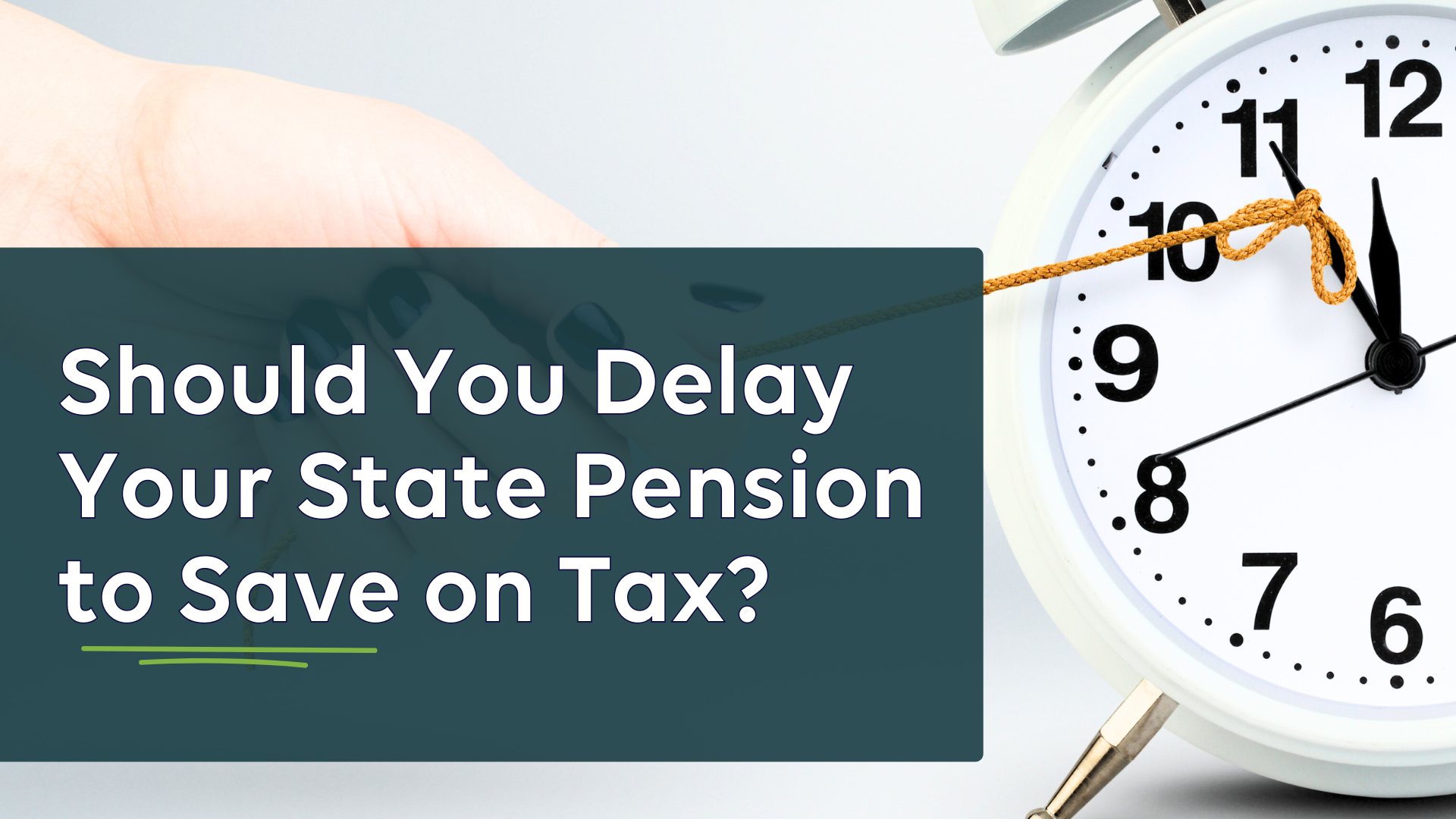Should You Carry On Or Call It A Day?
You’re still sharp, full of energy, and not quite ready to swap your work boots for gardening gloves just yet.…


Many people assume they have to claim this immediately, but you don’t. In fact, delaying now could mean bigger payouts and tax perks later.
In this week’s blog, we’ll walk you through the pros and cons of delaying your State Pension and explore whether waiting is right for you.
Delaying your State Pension could mean larger payments in the future. For every nine weeks you defer, your pension increases by 1%, which adds up to nearly a 6% boost each year!
Thinking about delaying? Here’s a quick look at the pros and cons:
| Pros of Delaying Your State Pension | Cons of Delaying Your State Pension |
|---|---|
| Bigger Payments Later: If you can hold off, you’ll get higher weekly payments when you do start claiming. | You’ll Have to Wait: If you need the income now, waiting might not be the best option. |
| Tax Savings: If you’re still working and earning a good income, deferring your pension could mean you’ll pay less tax now and get it when you’re in a lower tax bracket later. | Potential Tax Issues: Delaying can help with tax now, but if you’re still earning an income when you claim, you might end up paying more tax later. |
| Helpful If You Have Other Income: If you’ve got other savings, investments, or private pensions, holding off could boost your long-term income. | Health & Life Expectancy: If you don’t live long enough to benefit from the increased payments, you could end up with less overall. |
| Not Everyone Does It: Only around 7% of people nearing State Pension age choose to delay their payments. If you do, you’re making the most of an opportunity that most people overlook. | Could Affect Other Benefits: Delaying your State Pension might impact your eligibility for certain means-tested benefits, like Pension Credit or help with health costs. |
When deciding whether or not to defer your State Pension, here’s some important factors to think about:
To keep up with such things as life expectancy, the UK government regularly adjusts the State Pension. It’s set to rise to 67 between 2026 and 2028, and then to 68 between 2044 and 2046. Keeping an eye on these changes could help you stay on track with your retirement plans.
For a detailed breakdown of these changes and how they could impact your retirement plans, check out our blog on Your Guide To UK Pensions: See What’s In Store For You.
Life happens, and healthcare costs can crop up when you least expect it. If you defer your pension and suddenly need to cover health expenses, you might be forced to dip into savings. That’s why balancing the benefits of higher future payments with your immediate financial needs is so important.
Financial markets can be unpredictable, and sudden downturns may affect the value of your savings and investments. If you’re relying on these funds to cover future expenses, that uncertainty can create added stress. That’s why having a clear financial plan in place can help you stay steady through market ups and downs, giving you greater confidence in your retirement. Here’s why a long-term financial plan matters more than ever.
If you keep working and paying National Insurance while deferring your State Pension, it won’t increase your pension amount. That’s because your entitlement is based on your National Insurance record up to State Pension age.
For more details on how National Insurance contributions impact your State Pension and how to fill any gaps, check out our guide to UK pensions here.
If you’re married or in a civil partnership, delaying your State Pension could impact what your partner may receive later. If you pass away while deferring, your partner could inherit some of the extra pension, but it depends on the rules. Don’t worry though – we’re here to help you understand how it works and what it means for your future.
It’s worth thinking about how your pension decisions could affect both of you — Here’s why planning together as a couple matters.
When you defer your State Pension, your payments will increase yearly in line with the Consumer Price Index (CPI). This helps make sure your payments maintain their value and stay in line with the rising cost of living.
Deciding whether to defer your State Pension comes down to your financial situation now and what type of lifestyle you want in the future.
If you can afford to wait for those bigger payments, delaying could be a smart move for higher payments and tax savings.
However, if you need that extra income now, claiming sooner could let you enjoy more of what you love while you’re still fit enough to make the most of it.
Ultimately, it’s about finding what feels right for you and gives you peace of mind.
Everyone’s retirement is different, and that’s where we come in.
At Joslin Rhodes, we’ve been helping local people understand their pensions and retire happily for over 20 years.
Our local Financial Advisers will help you work through your options, so you can make the best decision for you.
So, if you’re looking for expert pension and retirement planning advice, tap here to contact us.
Or if you’re not quite ready for a one-to-one chat, book your place on our free Pension & Retirement Planning Workshop.
Pop your details below to arrange a call with our local pension & retirement planning advisers

You’re still sharp, full of energy, and not quite ready to swap your work boots for gardening gloves just yet.…